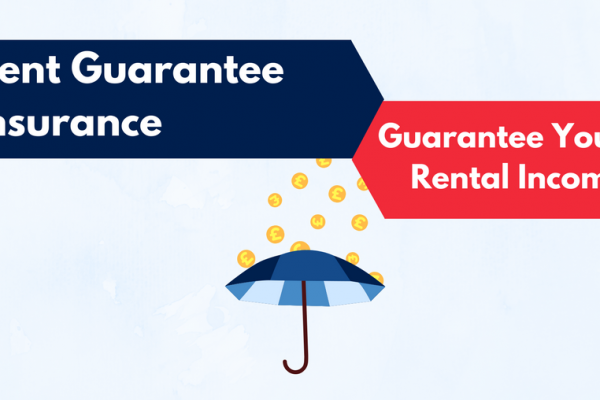Landlords must plan and budget appropriately to avoid nasty financial surprises. In this article, we outline the costs of being a landlord so that you can plan accordingly and make the most from your rental property.
Without researching your costs, it’s very easy to be overly optimistic about the value you will receive on your investment; both in terms of the rent you will collect and the value increase of your property. But if you treat property investment like a business, even if you have only one rental, then you will get a better handle on your profit.
Landlord Income
You will get one income stream a month – the rent from your tenant. Research how much tenants will pay for similar properties in the same area by looking at popular sites online like Rightmove or Zoopla. Even better, let us do the research for you with our Rent Calculator tool.
If you intend to manage the property yourself, then you get each monthly payment paid in full into your bank account. If you use a rental management company to oversee the tenants and property for you, they will receive the rent and forward it on to you, less their monthly fee, typically around 10%.
Costs of Being a Landlord
First-time property investors might be surprised by the number of outgoings a responsible landlord will make. You will understand finance costs but you must also plan for your income tax liabilities, tenant turnover, wear and tear, and annual safety certificates.
Mortgage costs
Assuming you have a mortgage on your rental property, you will make a mortgage payment every month. Payments might be fixed for several years, which is easier for long-term budgeting, but if your mortgage is variable, you need to know how much any future interest rate hikes will cost.
You can bring down the cost of your mortgage payments by arranging an interest-only product, rather than a repayment option. Interest-only increases your net income, but you will not be paying the mortgage off over time. Once the loan term is over, you must refinance or repay the mortgage in full — usually by selling the property.
Income tax
Unlike a salary paid via PAYE, where your income tax is paid automatically, you will be responsible for paying income tax from your rental earnings. You must submit an annual tax return to HMRC. We explain the process in this landlord income tax guide, including which costs can be set against your tax bill.
Wear and tear on furnishings and appliances
It’s only natural that your property will suffer wear and tear, just like your own home. Your carpets, kitchen units and appliances, bathroom and light fittings will all deteriorate over time.
How often you refresh your furnishings and appliances is up to you, but you will attract better tenants, and perhaps a higher rent if everything is kept in order. You may need to upgrade some items in between each tenant; maybe a lick of paint in places or new curtains or blinds. Other items, like the carpets and repainting ceilings, you can hopefully leave for many years.
Safety checks
Landlords are obligated to keep their tenants safe by carrying out annual safety checks at the property. You must budget for all these costs of being a landlord:
- EICR – The Electrical Installation Condition Report certificate lasts for five years. It covers all electrical equipment in the property that is supplied through the meter, including light fittings, plugs and wiring.
- PAT – Portable Appliance Testing is recommended annually. It covers electrical appliances like an oven, kettle, washing machine, lamps etc
- EPC – Renew your Energy Performance Certificate every ten years and hand a copy to every new tenant. You cannot rent a property below EPC Rating E.
- Gas Safety Certificate – A Gas Safe engineer must inspect your gas appliance fittings, including boiler, central heating and flues, each year. You should schedule a gas boiler service at the same time.
Visit our one stop shop for landlord services.
Order servicesTenant turnover
It is every landlord’s goal to find long-term tenants who stay for many years. It shows the tenant is happy, and it’s more likely they will look after the property well, treating it as if it were their own.
Changing tenants comes at a high cost. There may be a void period between the last tenant leaving and the next moving in. You receive no rental income during this time, so make sure you add the cost of rental voids into your long-term budgeting.
Many guides will tell you to assume that your property will be empty for one month in every twelve. But could be unnecessarily cautious. OpenRent landlords let their properties in under a week on average.
Then there is the cost of getting a new tenant in. There are three stages to this, and companies like OpenRent are the most cost-effective way to complete them all and resume your full rental income.
- Tenant find – let OpenRent advertise your rental and filter applicants
- Referencing – it’s vital you seek references for all tenants, ensuring they are reliable, able to pay and legally allowed to rent in the UK
- New contract – you will need to draft and secure new tenancy agreements every time a new tenant moves in (or when you need to update terms with an existing tenant).
The fewer times your tenants turn over, the fewer costs you face. It pays to find great tenants who will be with you for years.
Insurance
Landlords must insure their rental properties. You need buildings insurance, paid annually or monthly, just as you do for your own home. If your property is a leasehold, such as an apartment in a block of flats, then your service charge may include your insurance.
You won’t, however, need contents insurance, unless your rental is furnished. Even then, it is up to you whether you take out this insurance or not. The tenancy deposit can be used to replace any furnishings damaged by the tenants during the course of the tenancy.
All landlords should also invest in rent guarantee insurance (RGI), which covers against unpaid rent and associated legal costs. This will make your budgeting much easier, since it protects you against a sudden loss of income, giving your financial planning more certainty.
Stay in Control of Your Rental Finances
The costs of being a landlord outlined in this guide will help you budget for your first rental property. When you set these anticipated costs against the rental income you expect to receive, you will have a much better handle on your net profit target.
It’s a good idea to keep a spreadsheet with your budget, with expected costs adapted as they arise. Over time, your sheet will give an accurate representation of your income and expenses, and will be a good reference should you consider adding to your property portfolio.




Start the discussion at community.openrent.co.uk